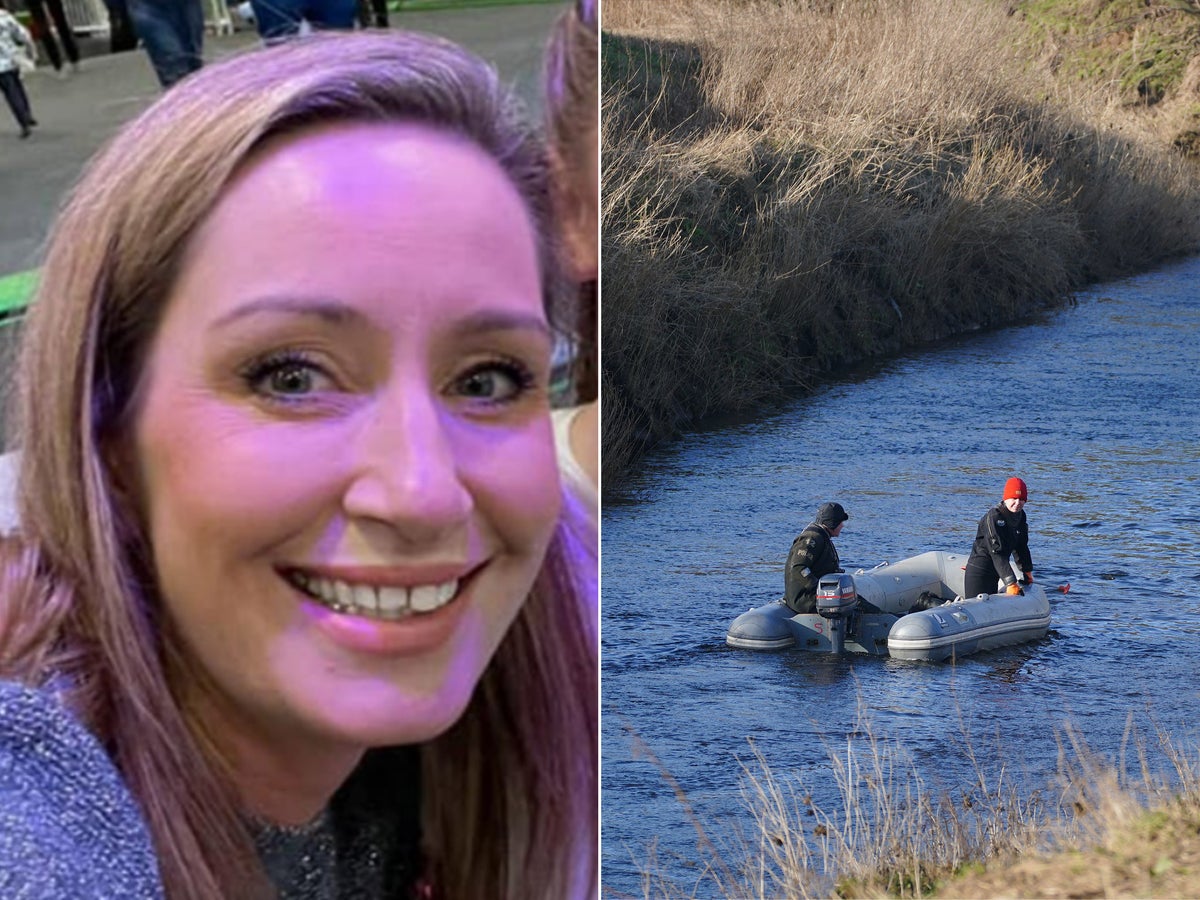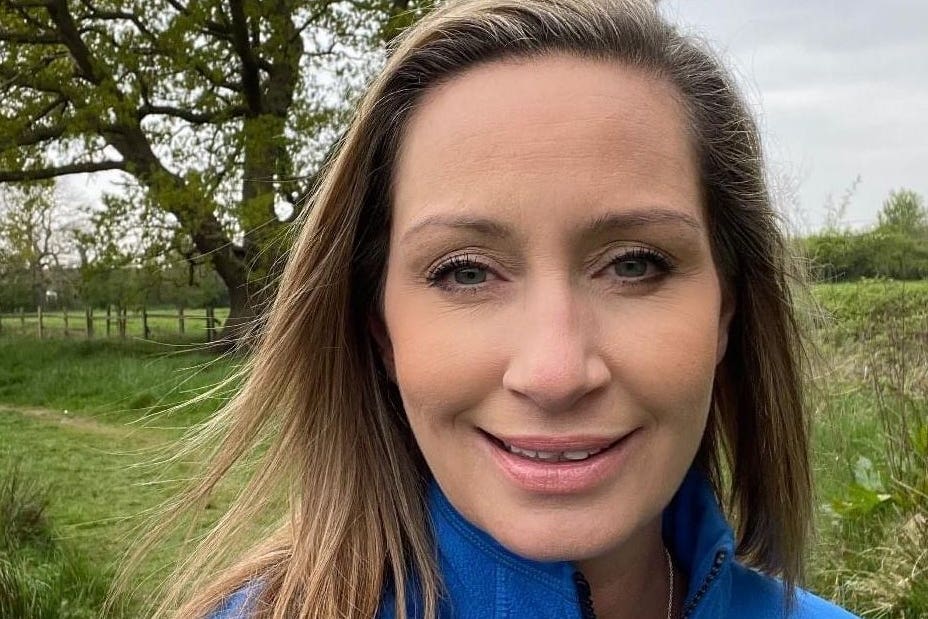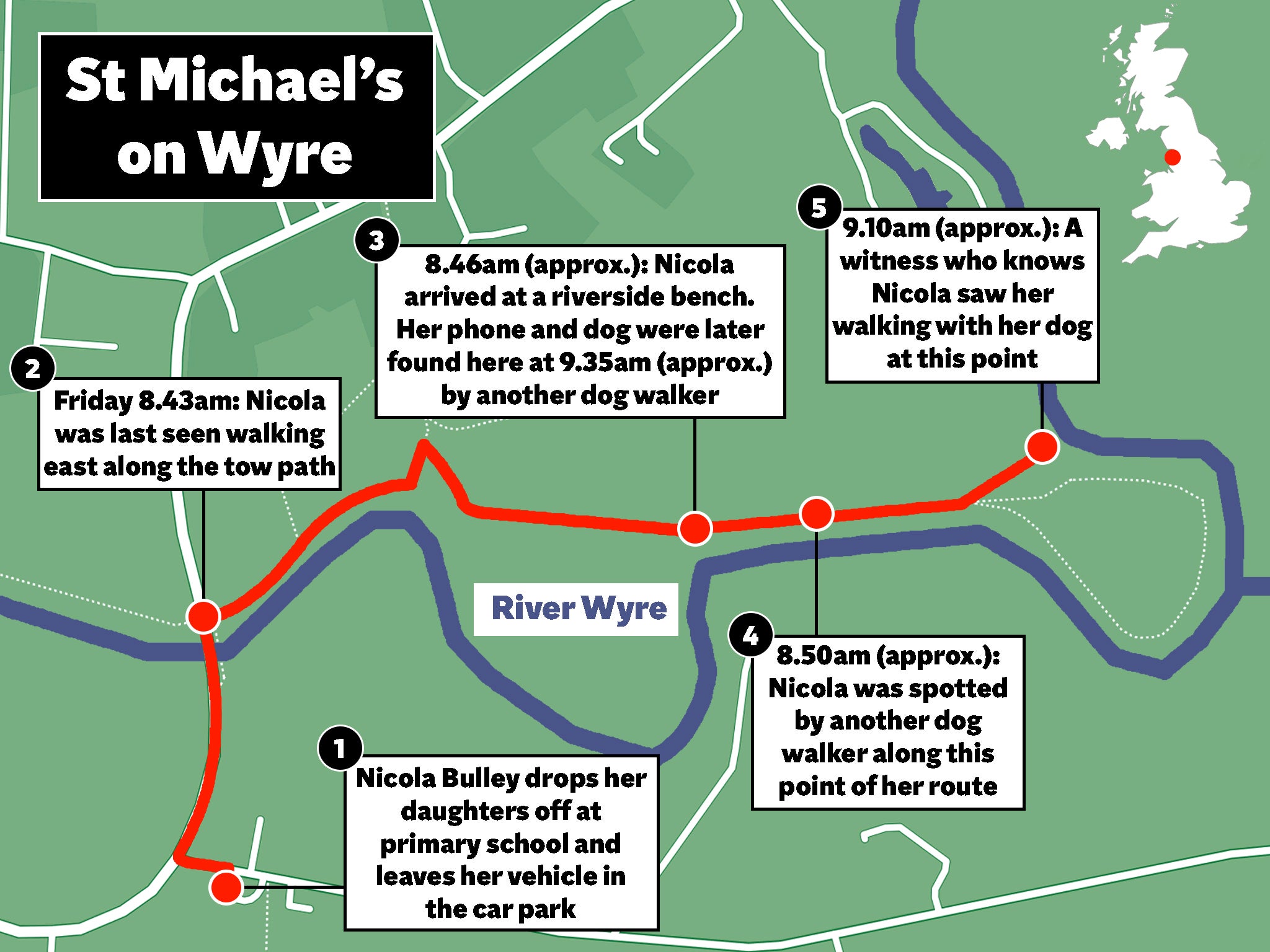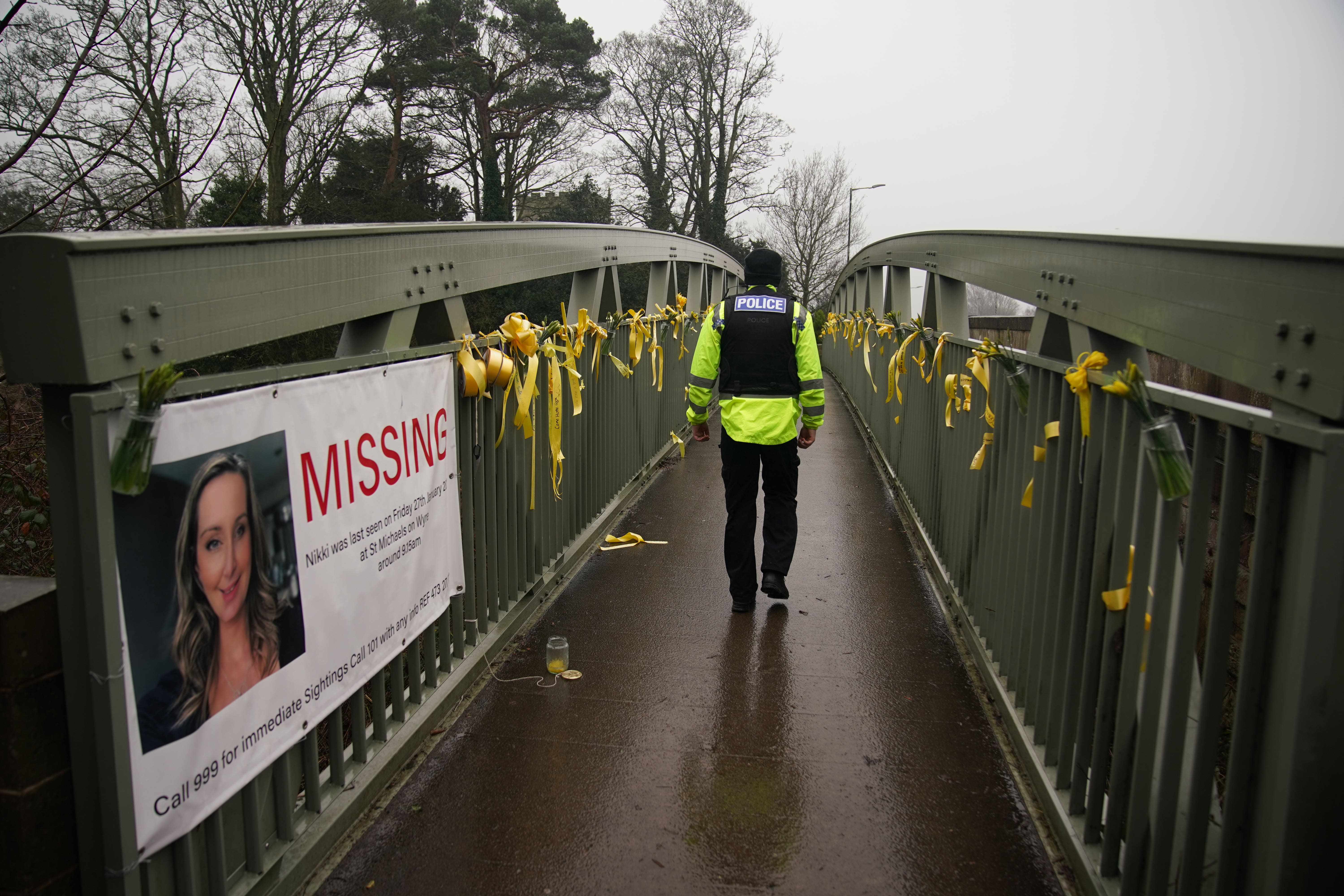
The performance of Lancashire Police in their hunt for missing Nicola Bulley has been “shocking”, according to a criminal investigator who exposed Jimmy Savile’s crimes.
Mark Williams-Thomas said the force had committed “major failings” and seriously hampered the search for the mother-of-two by initially not disclosing that she was at “high risk” but not treating the area where she disappeared as a crime scene.
He claimed her family would have been left in “turmoil” when detectives revealed Ms Bulley, 45, had “alcohol issues” after interest in the case had been allowed to mushroom during the three weeks since she vanished.

Ms Bulley, from Inskip, Lancashire, disappeared while walking her spaniel Willow in a field next to the river in St Michaels on Wyre on the morning of 27 January after dropping her two children off at school.
Her phone, still linked to an online work meeting, was found at a bench by the river.
Despite two sightings of Ms Bulley in the hour leading up to her disappearance and an extensive search of the area, police have been unable to find any traces of her.
Lancashire Constabulary said it was keeping an open mind about what might have happened to her, but their main hypothesis was that she had fallen into the river.
Mr Williams-Thomas, an ex-detective who works as an investigative journalist, wrote inThe Independent: “What has been lacking is a clear, appropriate and effective media strategy.”

On Wednesday, the force said Ms Bulley had “a number of specific vulnerabilities” – but did not say what, and that she was deemed at “high risk”, without explaining why.
Hours later, after criticism they had been vague, they revealed she had “issues with alcohol” brought on by the menopause. That prompted claims the police were victim-blaming.
“The family are now in turmoil,” said Mr Williams-Thomas. “The last 24 hours have been horrific because the police decided yesterday to release that she was a high-risk missing person. Their performance yesterday was shocking.
“Not only in the fact that [they said] she was a high-risk missing person in the press conference and then refused to explain what that was about.
“How did they think that they could release a piece of information like that and journalists and investigators weren’t going to say, what are you talking about?”
On Thursday, her family issued a new statement through the police force, explaining that the decision had been made to release her personal struggles due to “people threatening to sell stories” about Ms Bulley.

But Mr Williams-Thomas, who has vowed to compile a report on the case and has written about it for The Independent, said police should have come forward earlier with information about Ms Bulley’s issues, which they force initially described as “specific vulnerabilities”.
He tweeted: “If police dealt with high-risk status at start it would have provided much more understanding, leading to less confusion, public hysteria & media involvement (which police haven’t coped with ) & led to less damage to Paul & family, who are right now after y/day in a terrible place [sic].”

He also criticised the force for not treating the area where she disappeared as a crime scene because she had been deemed “high risk”.
“Very clearly, because of her high-risk status, they thought that she might have taken her own life,” he said. “The reality is though - could she have gone in this water and committed suicide? And what I would say is that is almost impossible.”
Ms Bulley’s partner, Paul Ansell, has also criticised the police’s handling of the case, saying he is sure she is not in the river, echoing similar comments by Peter Faulding, a forensic and search and rescue expert.
Lancashire Constabulary has hit out at “armchair detectives” commenting on the case and people on social media spreading misinformation. The Independent has asked Lancashire Police to comment on the criticism.
Anyone with information or footage is asked to submit information through the Major Incident Public Portal (MiPP) at Public Portal (mipp.police.uk)







